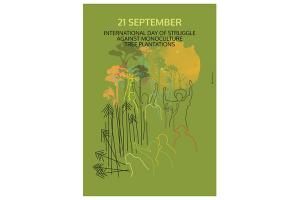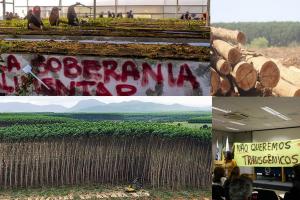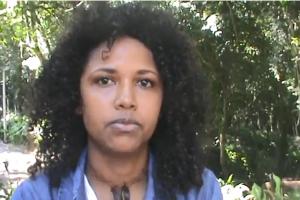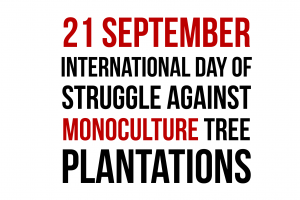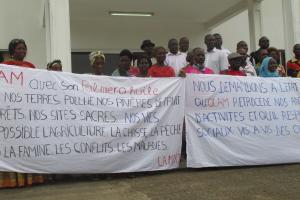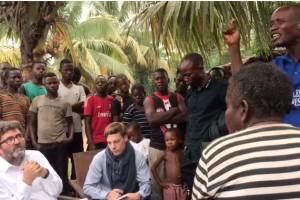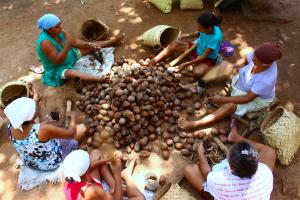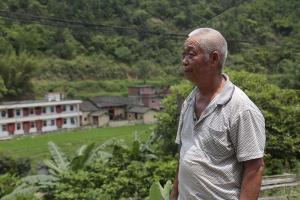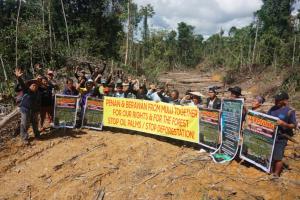Struggles Against Tree Monocultures
Corporate profit drives land grabs to install industrial tree monocultures. Where industrial plantations take root, communities' territories and lives are violently invaded, their forests destroyed and their water polluted. When communities resist, companies tend to respond with aggression. Despite this extreme violence, communities around the world are resisting, organizing and joining forces to defend their territories. Every September 21 the International Day of Struggle against Monoculture Tree Plantations is celebrated.
A threat spreads across our territories. Under the misleading name of "reforestation", which sounds quite nice, huge exotic tree plantations have been set up in Brazil by transnational corporations. We invite you to sign the following letter with us.
We need your support! We call on organizations, groups, networks and movements to sign this petition in solidarity with Gabonese communities threatened by OLAM / SOTRADER plantations. You can adhere until Thursday, September 19.
In a statement released on 14 August 2019, RIAO-RDC and support organisations call on DRC authorities to immediately find and arrest the murder suspect. Weeks have passed since the killing of Joël Imbangola Lunea without an arrest of the murder suspect.
We ask for your urgent support. Please sign on to the Action Alert. It is important to send the letter as soon as possible.
A member of the Congolese environmental and human rights organisation RIAO-RDC was brutally killed by a security guard of the Canadian palm oil company Feronia Inc. on Sunday, July 21, 2019, near the company’s Boteka plantations in Bempumba, Eqauteur Province, DRC.
The construction of the Suzano Pulp and Paper mill—along with nearby highways, the constant transport of wood, and the massive influx of workers—has brought a lot of devastation to communities. This is the testimony of an activist who is fighting for the territory.
As a condition to install its second pulp mill, the company UPM demanded that the Uruguayan state build a new railroad from the site where UPM plans to locate its mill to the port. The government would cover the costs of these infrastructure projects at the service of UPM.
Millions of hectares of mostly forested areas in Malaysia have been targeted for developing monoculture plantations –including expanding timber plantations-, however, many of these have not been fully developed yet.
